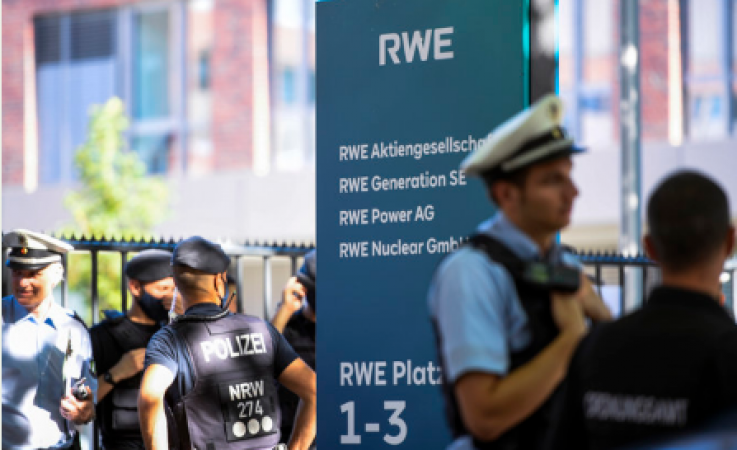
Berlin: In a decision that has elicited widespread discussion, a German court has rejected a special forces soldier's application for a weapons permit, igniting a profound legal and public debate concerning the rights of veterans and the prevailing specter of terrorism.
The court's judgment has highlighted the intricate balance between individual rights and the collective need for security.
The unnamed 42-year-old soldier, with a service history encompassing Afghanistan, initially sought authorization to carry a firearm in 2016. The police, responsible for evaluating such applications, denied his request, contending that he hadn't demonstrated a "concrete danger" warranting approval.
Also Read: Indian Air Force Bolsters Delhi's Airspace Security Ahead of G20 Summit
Dismayed by the decision, the soldier escalated the matter to the higher administrative court in Muenster, which ultimately upheld the police's position. The court's ruling hinged on the assertion that the soldier's risk of threat did not significantly outweigh that faced by the general populace.
Michael Heger, the soldier's legal representative, conveyed his disappointment in the outcome, suggesting that the decision amounted to a "slap in the face" for veterans who have dutifully served their nation.
Heger stressed the soldier's inherent "legitimate right" to self-defense in the face of potential harm. The lawyer also intimated the possibility of appealing the decision to the Federal Administrative Court, in a bid to secure his client's right to bear arms.
This decision has kindled a multifaceted conversation about the rights of veterans and the persistent undercurrent of terrorism. Advocates of the soldier's cause contend that he should be permitted to possess a weapon as a means of safeguarding himself against potential attacks.
Those on the opposing end of the spectrum argue that the court's decision is justifiable, considering the broader national security considerations and the looming threat of terrorism.
The discourse surrounding this contentious matter is anticipated to endure, given the intricate conundrum of how to harmonize the rights of veterans with the overarching imperative of shielding society from terrorist threats. Striking a balance between individual rights and collective security remains a challenge with no straightforward solution.
The German government, charged with safeguarding both individual rights and public safety, has announced its intention to reevaluate the court's verdict. Officials underscore that the review will encompass the legal intricacies and the extensive public discourse that has emerged in the wake of the decision.
Also Read: New York Attorney General Pushes for Swifter Verdict in Fraud Lawsuit Against Donald Trump
This verdict serves as a stark reminder of the trials and tribulations that veterans often encounter upon returning from conflict zones. In addition to grappling with the physical and psychological aftermath of their service, veterans can face discrimination and social stigmatization.
The German government must undertake more concerted efforts to bolster its support for veterans and ensure their protection from harm, acknowledging the distinct challenges they face as they transition back into civilian life.
The broader implications of this case transcend the individual circumstances of the soldier involved, shedding light on a wider systemic issue.
The challenges posed by integrating veterans back into society, ensuring their welfare, and recognizing their rights are matters of significant concern for governments across the globe.
These challenges are compounded when juxtaposed with the evolving landscape of modern security threats, exemplified by the specter of terrorism that looms over societies.
The multifarious dimensions of this debate are emblematic of a larger global quandary: how to navigate the intricate intersection of individual liberties and collective security imperatives.
As nations grapple with safeguarding their citizens from emergent threats, it is imperative to ensure that these efforts do not infringe upon the fundamental rights of those who have defended their countries.
In conclusion, the decision by a German court to deny a weapons permit to an Afghanistan veteran special forces soldier has initiated a nuanced and impassioned discourse on the rights of veterans and the overarching need for societal security.
This ruling underscores the multifaceted challenges associated with balancing individual rights with collective safety imperatives, particularly within the context of contemporary security concerns. As the conversation evolves, it serves as a reminder that nations must navigate these complex issues with the utmost sensitivity, ensuring that veterans' rights are upheld while simultaneously safeguarding society from emerging threats.
Also Read: Egyptian Cargo Ship Rescues 150 Migrants Stranded off Greek Coast
The outcome of this deliberation will undoubtedly impact not only the individual at the heart of the case but also the broader narrative surrounding veterans' rights and modern security dynamics.